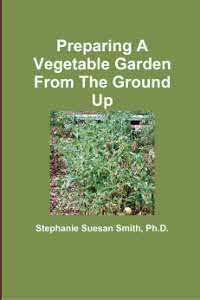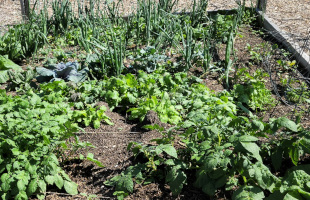
Hans / Pixabay
What is an heirloom plant? That seemingly innocent question can start more fights among garden enthusiasts than anything but the “hybrid vs. open pollination” controversy. This article will discuss some definitions, the pros and cons of heirloom plants, and where you can find more information.
Does age make it a heirloom? Heirlooms can be defined by age, but what age? Some people use 50 years, some 100 years. Others say they must have existed prior to 1945, when WWII ended. Almost everyone says heirlooms seeds must have existed prior to 1951, when hybrids were widely introduced.
What about passing down seeds or plants? Heirlooms can also be defined as seeds and plants passed down from one family member to another. This definition excludes seeds and plants that were introduced by now defunct companies but were so useful that others picked them up and carry them. These would be similar to the generic drugs sold be pharmacies.
Open pollinated In any case, everyone agrees that the plants must be open pollinated. No hybrid could be easily saved. Heirlooms must be able to breed true. In addition, no genetically modified organisms need apply.
No GMOs here This, in fact, is one of the great attractions of heirloom plants for people. They know the heirlooms are not genetically modified. That is not to say they are not modified. Bred over time in a specific place, they become adapted to that microclimate, resistant to its’ pests, and able to survive where other plants could not.
Need genetic variety Another reason for planting heirloom varieties is to preserve the genetic variety of plant life. One need look no further back than the Irish potato famine to know the folly of depending on mono-cropping for food. If a corn pest hit the bread baskets of the world, an heirloom variety might have the resistance to save the food supply.
Bred for taste, not travel Heirloom varieties are said to taste better because they are breed for taste, not the ability to travel long distances in a truck or be mechanically picked. On the other hand, heirloom varieties do not travel well. They can be hard to find, although that is changing. Since they are adapted to a particular place and soil, they may not grow well in just any garden. Because there is little money in researching them, less is known about their specific disease and pest resistance than the more extensively studied hybrids. More care must be to separate similar varieties so they do not cross pollinate, a problem in small gardens.
Only you can make up your mind about whether to plant heirlooms, conventional plants, or some of both. Here are some sources of seeds and plants, as well as information:
Seeds of Change widely recognized as the gold standard of organic open pollinated plants, many of which are heirlooms.
The Seed Savers Exchange has an extensive seed bank of seeds members have given to preserve genetic diversity. They pass some of these plants on so that they do not become extinct. A non-profit, they are worth supporting.
The American Livestock Breeds Conservancy deals with heirloom livestock, but has a great deal of information on genetic diversity that is useful. Besides, what is a farm without a few chickens, and they have some who need homes. These people are also non-profit and worth supporting.
Victory Seeds offers rare heirloom seeds and plants.
What resources do you use to find heirloom seeds and plants? Leave them in the comments for others to see.
 For more help gardening, buy my book, Preparing A Vegetable Garden From The Ground Up
For more help gardening, buy my book, Preparing A Vegetable Garden From The Ground Up
Available in print or ebook from Amazon.com or other retailers, this book walks you from choosing the site of your garden all the way through what to do after the harvest. Buy a copy for yourself or a friend today!


Hi Stephanie, Good post. I’ve been thinking about doing one about heirlooms vs. hybrids and GMOs. I personally like both hybrids and heirlooms because hybrids sometimes perform better in my climate. But, hybrids have been falsely brushed with the broad GMO brushstroke, and as you know, they just aren’t the same. Again, wonderful post.~~Dee
Thanks. No, GMOs involve molecular biology and genetic modification that doesn’t happen in simple hybridization. So hybrid isn’t necessarily a dirty word, but GMO is.